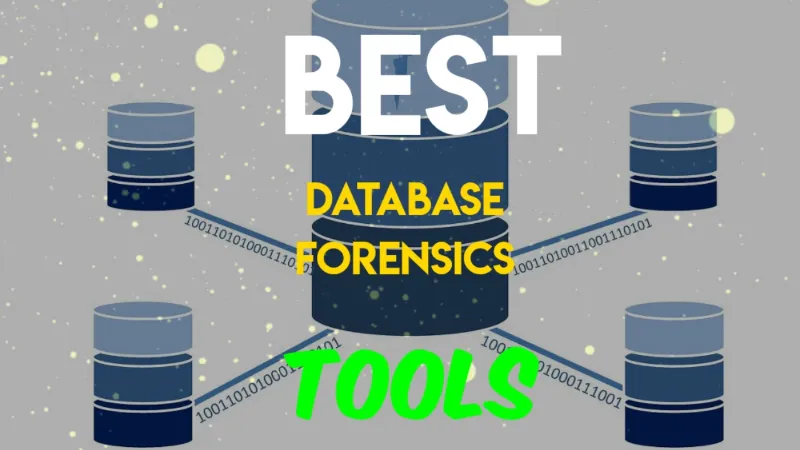Hey there, audiophile! Have you ever struggled with disorganized audio files scattered all over your device?
I know I have. Let’s face it; a neat and organized music library isn’t just about vanity—it’s about functionality. It’s about knowing where every audio file resides, who sang it, and what album it belongs to.
Plus, it makes your playlists look spick and span.
But how do we get there? Well, I’ve got the answer. It comes down to this magical thing called metadata—the invisible information attached to your audio files.
Yes, that’s right, your files have been whispering secrets behind your back all this time!
Now, if you’re thinking, “But I’ve got hundreds, maybe thousands of audio files. I can’t possibly organize them all,” hold on to your headphones because I’ve got good news.
Some tools can do it for you—not elves, but close! Let’s dive into the seven (7) best audio metadata viewer and editor tools that will tune up your audio experience.
Best Audio Metadata Editor and Viewer
Here are the seven (7) tools that you can use;
1. MediaMonkey
One of the key advantages of using MediaMonkey is its ability to handle a wide range of audio formats, including MP3, FLAC, AAC, and more.
MediaMonkey has got you covered whether you have a diverse collection of music files or prefer specific formats.
The software provides an intuitive platform where you can view, edit, and update metadata tags effortlessly.
MediaMonkey allows you to fine-tune every aspect of your audio files ‘ metadata, from basic information like song titles, artists, and album names to more intricate details such as track numbers, genres, and lyrics.
Additionally, MediaMonkey supports batch editing, saving you time and effort. You can select multiple audio files and apply changes to their metadata simultaneously, making it incredibly convenient for large music libraries or when you want to make consistent modifications across multiple tracks.
Another notable feature of MediaMonkey is its ability to retrieve missing metadata from online databases automatically.
By scanning your audio files, MediaMonkey can fetch accurate and up-to-date information, ensuring that your music library remains organized and complete.
It’s a valuable time-saving feature that saves you from manually inputting metadata for each individual file.
2. Mp3tag
One of the key advantages of using Mp3tag is its ability to handle a wide range of audio formats, including MP3, FLAC, AAC, and more.
Whether you have a diverse collection of music files or prefer specific formats, Mp3tag can effortlessly handle them all. This versatility ensures that you can manage your entire music library with ease.
Mp3tag’s strength lies in its bulk editing capabilities, allowing you to simultaneously modify metadata tags for multiple audio files.
This feature is particularly beneficial if you want consistent changes across many tracks. With just a few clicks, you can edit common attributes such as song titles, artists, album names, and genres, saving you valuable time and effort.
Another standout feature of Mp3tag is its integration with online databases.
By connecting to popular music databases like Discogs and MusicBrainz, Mp3tag can automatically fetch your music files’ accurate and up-to-date metadata information.
This ensures that your library remains well-organized and consistent, with correct tags for each track.
3. MusicBrainz Picard
MusicBrainz Picard can analyze and match your audio files with the correct metadata information.
By employing sophisticated fingerprinting technology, Picard can identify your tracks even if they have missing or incorrect metadata.
This ensures that your music library remains well-organized, with accurate and consistent information for each track.
MusicBrainz Picard’s integration with the MusicBrainz database is a significant strength.
This database is constantly updated by a community of music enthusiasts, ensuring you have access to the most up-to-date and comprehensive metadata for your music files.
Picard utilizes this vast information collection to provide accurate tags for your tracks, including artist names, album titles, track numbers, genres, and more.
Another standout feature of MusicBrainz Picard is its ability to tag your audio files automatically. With just a few clicks, Picard can retrieve and apply metadata information to your entire music library.
This saves you from the tedious task of manually inputting tags for each individual track, especially when dealing with large music collections.
4. Kid3
Kid3 provides a simple platform for editing metadata tags. Its intuitive interface lets you easily view and modify essential information such as song titles, album names, artists, and genres.
You can also add details like track numbers, release dates, and even lyrics, allowing for a more enriched music library experience.
Another advantage of using Kid3 is its batch editing functionality. This feature lets you modify metadata tags for multiple audio files simultaneously, saving time and effort.
Whether you need to update album information for an entire album or make consistent changes across multiple tracks, Kid3 simplifies the process with its efficient batch editing capabilities.
Kid3 also supports importing and exporting metadata, allowing you to easily transfer tag information between audio files or share your metadata edits with others.
This feature is handy to ensure consistency across various devices or collaborate with fellow music enthusiasts on metadata updates.
5. TagScanner
One of the standout features of TagScanner is its extensive support for a wide range of audio formats. Whether you have a collection of MP3s, FLAC files, or other popular formats, TagScanner can handle them all.
This versatility ensures you can manage your entire music library without worrying about compatibility issues.
TagScanner offers a range of tools and options to help you efficiently edit metadata tags. You can easily update information such as song titles, album names, artists, and genres.
TagScanner also supports batch processing, allowing you to simultaneously apply changes to multiple audio files. This feature saves you time and effort, especially when dealing with large music collections.
One of the notable strengths of TagScanner is its ability to retrieve missing metadata from online databases.
By connecting to sources like MusicBrainz and Discogs, TagScanner can automatically fetch accurate and up-to-date information for your music files.
This ensures that your music library remains well-organized and enriched with correct tags, even if your files initially lacked complete metadata.
6. EasyTAG
EasyTAG provides a clean and straightforward platform for viewing and modifying metadata tags. Its user-friendly interface lets you easily edit essential information such as song titles, album names, artists, and genres.
You can add details like track numbers, release dates, and even cover art, creating a visually appealing and well-organized music library.
Another valuable feature EasyTAG offers is batch processing, allowing you to change multiple audio files simultaneously.
Whether you need to update tags for an entire album or modify specific attributes across multiple tracks, EasyTAG simplifies the process by applying changes to multiple files simultaneously, saving you time and effort.
Furthermore, EasyTAG supports importing and exporting metadata, making it easy to transfer tag information between audio files or share your metadata edits with others.
This feature is handy to ensure consistency across different devices or collaborate with fellow music enthusiasts on metadata updates.
7. MetaZ
One of the standout features of MetaZ is its integration with popular online databases such as IMDb and TheTVDB.
This integration allows MetaZ to retrieve accurate and comprehensive metadata information for your music files.
MetaZ ensures that your music library is enriched with correct and up-to-date metadata, from album artwork to artist details and track information.
MetaZ offers a user-friendly interface that makes editing metadata a breeze. You can easily modify essential details such as song titles, album names, artists, and genres with just a few clicks.
Additionally, MetaZ provides the option to batch-process your audio files, enabling you to apply changes to multiple tracks simultaneously, saving you time and effort.
Another notable feature of MetaZ is its support for custom tagging. You can create your own metadata tags and assign them to your music files, allowing for a personalized organization system.
This level of customization ensures that your music library reflects your unique preferences and organizational style.
Conclusion
Each of these tools has its own strengths, and the best one really depends on what suits your needs and your style. But one thing’s for sure – if you’re serious about your audio files, it’s high time to tidy up your library.
Remember, the power of metadata is in your hands. Don’t let those disorganized files ruin your groove. Choose your metadata editor, and let your audio files sing in harmony. Until next time, keep the music playing!









